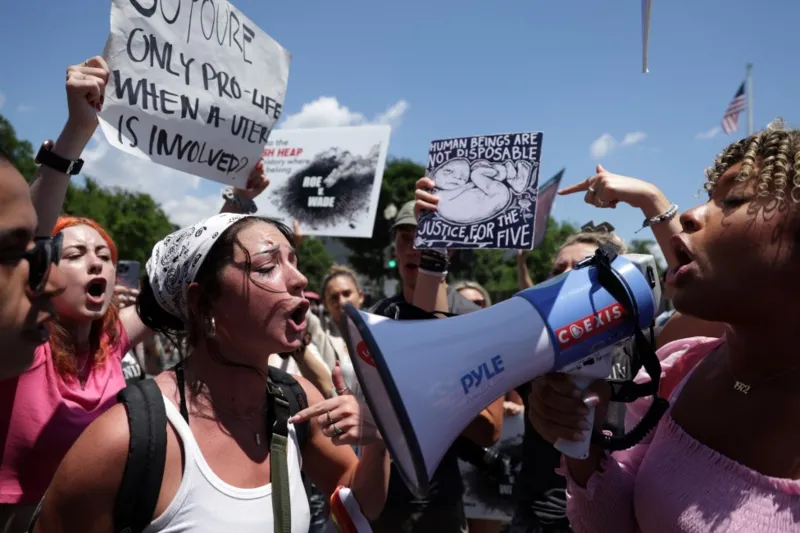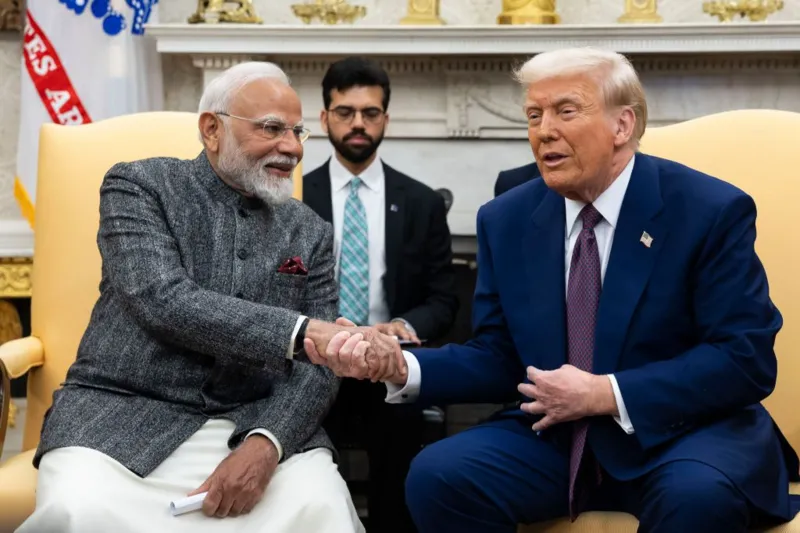Ruling makes Florida new epicentre in US abortion battle
Florida's Supreme Court delivered two rulings on abortion on Monday, with competing consequences.

First, the court upheld the state's right to prohibit abortion, giving the green light for a six-week ban to take effect on 1 May.
The near-total ban will block almost all access in the US South, where Florida had been something of a haven for those seeking abortions, surrounded by states that had already implemented six-week or total bans on the procedure.
The ruling was applauded by national anti-abortion activists, many of whom see a six-week ban as the gold standard for abortion policy. The decision is a "victory for unborn children", said Katie Daniel, Florida policy director of Susan B Anthony Pro-Life America.
But in a 4-3 vote, the justices also approved a November ballot initiative that, if approved, would overturn the six-week ban and enshrine broad abortion access in the state's constitution.
The decisions have sharpened the glare of the political spotlight on the Sunshine State, and set up perhaps the highest stakes abortion fight since the Supreme Court overturned Roe v Wade in June 2022.
The six-week ban in Florida - the country's third most populous state - may affect more women than any other statewide ban implemented since the repeal of Roe.
Just over 84,000 women received abortions in Florida last year, state data says. According to pro-choice research group the Guttmacher Institute, that figure showed a 12% jump over 2020, which researchers attribute mostly to out-of-state patients.
Some Florida lawmakers, many of whom voted for the six-week ban last year, called the law a compromise, adding that it includes exceptions for cases involving rape, incest, abnormalities and when the mother's life is in danger.
But pro-choice activists have warned that even with these exceptions, strict abortion bans can endanger women's health, pointing to cases involving pregnancy complications in states such as Texas.
And, they add, Florida's six-week law is particularly restrictive, requiring patients seeking abortions to have two in-person doctor appointments with a 24-hour waiting period in between.
"At six weeks most women have no idea that they're even pregnant," said Anna Hochkammer, executive director of the pro-choice group Florida Women's Freedom Coalition. "A mammoth health crisis is about to befall us."
Florida's new abortion landscape also has significant political consequences. The November referendum, experts say, has handed Democrats a chance to highlight an issue where they have a proven electoral edge.
In the almost two years since Roe was overturned, pro-choice activists have won all seven abortion-related ballot initiatives, even in Republican-led states. And sustained public support for abortion access has been credited with helping Democrats over-perform in both state and national races.
"Abortion is an opportunity for Democrats and it remains a problem for Republicans," said Republican strategist Kevin Madden, who was a spokesman for Utah Senator Mitt Romney's presidential campaigns. "This gives them [Democrats] some wind at their backs."
On Tuesday, within a day of the abortion rulings, top US House of Representatives lawmakers convened a special hearing in the state, which the chamber's minority leader Hakeem Jeffries called "ground zero" for abortion access.
Hours after that, on a call with reporters, Biden campaign manager Julie Chávez Rodríguez said the same as she worked to tie the Florida ban to Donald Trump, now the presumptive Republican nominee.
Mr Trump "is directly to blame", Ms Chávez Rodríguez said. "Because of Donald Trump, Maga [Make America Great Again] Republicans across this country are ripping away access to reproductive healthcare."
Getty Images Pro-choice activist holds pamphlet in MiamiGetty Images
And Ms Chávez Rodríguez went further, suggesting the Florida abortion fight could help tilt the electoral scales, giving Democrats a fighting chance to flip the state in November.
"We definitely see Florida in play," she said. "We're clear eyed about how hard it is to win Florida… But we also know that Trump does not have it in the bag."
Few people think that these rulings will actually swing the presidential contest in Florida - a Republican stronghold for over a decade. But experts say there is indeed now an opening for Democrats to once again over-perform and potentially flip some down-ballot contests, including some competitive Senate and House races.
Veteran Democratic strategist Simon Rosenberg said that the abortion vote would bring "enormous amounts of money, volunteers and energy into the pro-choice side, which changes the politics in the state".
"All of a sudden what we knew about Florida in 2024 is now unsettled," he said. "A six-week abortion ban is a bridge too far for the people of Florida, the polling on this is really clear."
Early surveys on the ballot initiative itself, dubbed Amendment 4, tell a similar story, indicating that more than 60% of Floridians support the amendment - clearing the bar to pass.
But whatever the result of November's vote, Florida will spend the next several months under a six-week abortion ban.
Those seeking the procedure after that will have to travel several hours and two states north to North Carolina, which still allows abortions until 12 weeks. After that, the closest option is southern Virginia - nearly 900 miles from Florida's southern tip, or a 14-hour car ride, one way.
-bbc






